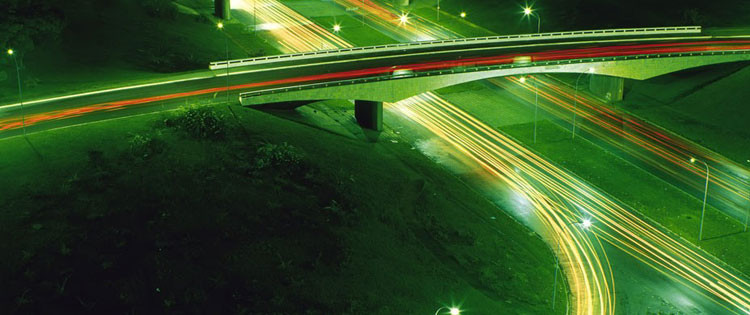Alamo city transportation board approves road diet for Hwy 281
Today, the Alamo Area Metropolitan Planning Organization (AAMPO) unanimously voted to approve a resolution to do the US 281 project (from Loop 1604 to the Bexar County line) in San Antonio without tolls. However, the new proposal involves converting one existing, unrestricted freeway lane into an HOV-bus lane (a restricted lane), shrinking existing capacity open to all cars rather than expanding it. While there are six general purpose (unrestricted) highway lanes today, once the conversion is completed, there will be only four.
Texas Department of Transportation (TxDOT) officials claim the current roadway is akin to a frontage road, despite maps from the U.S. Geological Survey and documents from the Federal Highway Administration showing otherwise. TxDOT argues they’re not shrinking highway main lanes by crediting the addition of new frontage lanes to the outside of the existing highway in the lane count. This fuzzy math enables them to assert they’re ‘doubling’ existing capacity.
While commuters are celebrating the removal of tolls from this project, which has experienced two rounds of litigation and years of political wrangling to achieve, residents still struggle to see how taking away an existing, unrestricted highway lane open to all cars and converting it into a restricted HOV-bus lane will alleviate congestion.
Officials admit it’s designed to change behavior and force people out of their cars and into a carpool or a bus, which many consider a form of social engineering. Carpooling or taking a bus is impractical for the vast majority of commuters. Via Metropolitan Transit is insisting on shrinking the highway capacity with its HOV-bus lane conversion to incentivize commuters to ride the bus in order to support its new $15 million Park-n-Ride at the corner of Stone Oak and US 281. However, this bus-carpool lane is only for seven miles.
The Park-n-Ride buses don’t begin until Stone Oak Parkway, so in reality, the benefit of the exclusive bus lane is only for three miles. It’s been dubbed the ‘lane to nowhere.’ It doesn’t connect to any other HOV-bus lanes anywhere in San Antonio because there are none. Buses can utilize the new frontage roads alongside US 281 without creating exclusive lanes.
The AAMPO consultant from WSP-Parsons Brinkerhoff who gave a presentation to the board on August 28, admitted HOV lanes do not solve congestion. HOV lanes are persistently underutilized and most buses still run empty. Even with the exclusive lanes, buses still add to your overall commute time due to wait times and stops.
In a 2004, Pravin Varaiya, a professor at the University of California at Berkeley, did an academic study of HOV lanes and highway congestion which states: “An HOV lane suffers a 20% capacity loss compared with multi-lane freeways. HOV lanes are either under utilized or suffer degraded operations. HOV lanes do not measurably increase car pooling. HOV lanes do not reduce overall highway congestion.”
Part of a ‘road diet’
Mayor Ivy Taylor recently unveiled her vision for San Antonio a few weeks ago to the city council to put San Antonio on a ‘road diet.’ It’s unprecedented to take an existing unrestricted lane and turn it into a restricted HOV-bus lane. Up until now, HOV lanes have been new lanes or special lanes utilizing the shoulders of medians. Never before has a lane open to all autos been converted into an HOV-bus lane.
If the plan moves forward as is, this HOV-bus lane would be the first installment of what will eventually be such lanes on every highway in San Antonio. The AAMPO board is spending $300,000 to study imposing HOV-transit-toll lanes across the Alamo city. But that will take decades. Regardless, when single occupancy vehicle commuters are faced with deliberate government-imposed road scarcity, they’ll remain stuck in congestion.
According to AAMPO documents, congestion weary commuters were promised an additional general purpose lane on US 281 since the late 1990s. Commuters desperately need the additional lane for the project to be successful in relieving congestion.
Texas House Speaker Joe Straus was instrumental in getting the tolls off US 281 in recent weeks, so residents say they’ll continue to seek his help to secure the new, general purpose lane that was promised to residents nearly 20 years ago.

